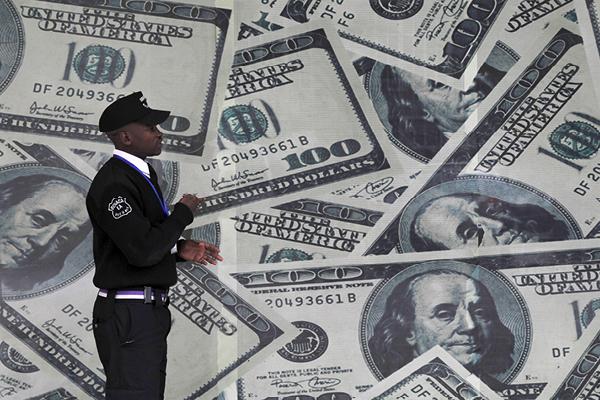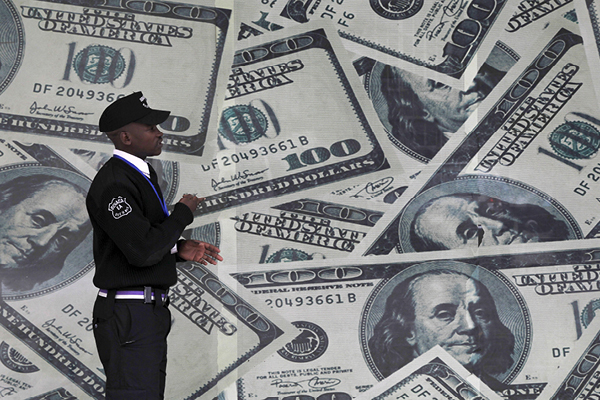
As Asian countries roll out or step up their anti-corruption efforts, what should companies do to ensure compliance and sidestep potential minefields? Eileen C.Ang finds out
Anti-corruption efforts are on an upsurge across the world, and nowhere is this campaign more evident than in Asia, where several countries have recently passed new laws or reinforced existing frameworks designed to clamp down on corruption. Lawyers say that while multinational companies with Asian operations continue to focus on U.S. and UK anti-corruption legislation, including the U.S. Foreign Corrupt Practices Act (FCPA) and UK Bribery Act, MNCs should also pay equal attention to local laws lest they run afoul of regulators and expose themselves to enforcement risks.
This development comes amid bribery scandals that have shaken up the region, including a 2013 case revolving around GlaxoSmithKline’s marketing and promotion strategies in China and a 2014 case involving Japan Transportation Consultants and the kickbacks it paid to government officials in Vietnam, Indonesia and Uzbekistan from 2009 to 2014. The two companies were slapped with significant penalties – GSK was ordered to pay a record-breaking fine of 3 billion yuan (nearly US$490 million) – and faced public humiliation in the aftermath of government investigations into their business practices.
How are businesses affected by a tighter compliance environment? “I think the impact is that most conscientious MNCs working in Asia have built up robust compliance programmes that acknowledge this global effort to stamp out corruption while also building an internal culture of compliance that acknowledges that each company operating in Asia can contribute to the effort beyond the regulations put in,” says Dan Shea, director of compliance and litigation at Microsoft Asia Pacific & Japan.
However, having a “do not bribe” policy isn’t enough to ensure compliance, as companies need to devise and implement procedures that support it, says Jarrod Baker, senior managing director at FTI Consulting. “These procedures should be around items including but not limited to, gifts and entertainment, facilitation payments, charitable donations, training, use of third parties,” he adds.
Back to topHOTBED OF CORRUPTION?
Asia is home to some of the world’s most and least corrupt countries, according to the 2014 edition of Transparency International’s annual Corruption Perception Index. Out of the 175 countries and territories included in the 2014 Index, which is aimed at assessing perceived levels of public-sector corruption, Singapore and Japan were among the cleanest countries, ranking 7th and 15th, respectively. Meanwhile, Cambodia and Myanmar were tied at 156th place, which indicates that they are viewed as very corrupt.
As such, it doesn’t seem surprising that Asia is in the crosshairs of U.S. regulators intent on fighting international corruption. Data from a 2015 survey by global law firm Freshfields Bruckhaus Deringer reveal that there are over 100 ongoing investigations in the region under FCPA, which prohibits individuals or companies from making illegal payments as well as giving anything of value to public officials, parties or candidates outside the U.S. to help in securing or retaining business. In comparison, Africa is facing at least 44 FCPA-related probes, while the European Union has only 19 investigations under way.
Does this mean that some Asian jurisdictions more difficult than others? Not necessarily, according to Shea. “I think like any region in the world, there are countries that sit high on Transparency International’s Corruption Index in Asia that any MNC should pay particular attention to when conducting business there. You need to be diligent in all countries but there are countries at top of that list that have likely earned their ranking because of historical, economic or political instability,” he says.
Baker adds: “Ultimately, if the company is subject to a law like the FCPA, that is the compliance standard to which it must operate across the world. Local nuances should be considered, but it is best to avoid making local exceptions because where do you draw the line? Whilst the message that ‘this is not the way we do business’ may take time and effort to get across, there are recent highprofile corruption cases within Asia that can help with such a message.”
Back to topALIGNMENT AND VIGILANCE
Having a clear anti-corruption policy that’s underpinned by solid, implementable procedures is all very well, but how should MNCs handle the tricky balancing act of aligning these programmes with the approach used by the head office and adapting to the realities of local markets?
Shea recommends a strategy that combines a macro view and a micro focus. “A MNC needs to have a strong, central compliance programme that encompasses all the policies that apply to all employees throughout the world. There are certain policies that will always apply, without exception, everywhere you operate – e.g. no bribes or kickbacks. From there, the local subsidiaries may adopt further compliance policies or implement additional training or controls that take into account any additional local laws and regulations,” he says.
Baker advises companies to be vigilant about “high-risk touch points” for corruption and avoid using a cookie-cutter approach to pinpointing and evaluating corruption risks. “These are interactions within the company’s business operations where the potential exists for corruption to occur. For example, is there a third party acting on the company’s behalf in obtaining a permit from a government authority?” he asks.
As such, Baker points out that it’s never a good idea to simply rely on a check list and just tick off to-do boxes. Companies should delve into their business operations to identify where and how they are vulnerable to corruption. One way to do this, he suggests, is to conduct interviews with key personnel in critical roles, such as managers at the head office, regional heads, legal teams and so on, “in order to understand the nature and extent of various types of corruption risk, especially as those risks relate to the company’s specific business model, structure, strategy and resources.”
MNCs should also have “a focused programme and rhythm of regional compliance committees” in each market, suggests Shea. These regional committees should be composed of senior leaders from the company’s finance, legal, human resources and other major departments, and their main task is to review corruption risks and implement controls and policies consistent with the goals of the central compliance programme. “By consistent engagement, each regional compliance committee can discuss and address risks, issues or regulations specific to its country or region. The central compliance programme should monitor the regional compliance committee activity so that the programme is running consistently and effectively, taking into account the variance of challenges faced in a particular country or region,” he says.
As Asian countries continue to establish their own regulations and enforcement regimes against corruption, MNCs need to stay alert and consistently monitor these developments. “I think the challenge is making the appropriate investment in tracking changes in local regulations and enforcement practices,” adds Shea.
Country | Anti-corruption body/regulator | Relevant anti-corruption laws/regulations |
Hong Kong | Independent Commission Against Corruption | Prevention of Bribery Ordinance, Banking Ordinance, Companies Ordinance, Theft Ordinance, Organised and Serious Crimes Ordinance |
India | Central Bureau of Investigation (Anti-Corruption Division) | Prevention of Corruption Act 1988, Lokpal and Lokayutas Act 2013, Prevention of Money Laundering Act 2002 |
Indonesia | Public Prosecutor, Financial Transaction Reports and Analysis Centre, Commission of Corruption Eradication | Anti-Corruption Law, Anti-Bribery Law, KPK Law, Indonesian Criminal Code, Anti-Money Laundering Law |
Japan | No single body; National Police Agency and Public Prosecutor’s Office work with specialist units | Penal Code, Unfair Competition Prevention Act, National Public Service Ethics Act, National Public Service Ethics Code |
Malaysia | Malaysian Anti-Corruption Commission | Malaysian Anti-Corruption Commission Act 2009, Penal Code, Anti-Money Laundering and Anti-Terrorism Financing and Proceeds of Unlawful Activities Act 2001 |
Myanmar | Anti-Corruption Commission | Anti-Corruption Law, Penal Code, Anti-Money Laundering Law of 2014 |
Philippines | Philippine National Police’s Criminal Investigation and Detection Group, National Bureau of Investigation’s anti-graft section | Revised Penal Code, Anti-Graft and Corrupt Practices Act, Anti-Money Laundering Act |
Singapore | Corrupt Practices Investigation Bureau | Prevention of Corruption Act, Penal Code, Corruption, Drug Trafficking and Other Serious Crimes (Confiscation of Benefits) Act |
South Korea | Anti-Corruption and Civil Rights Commission, Financial Intelligence Unit | Korean Criminal Code, Specific Crimes Act, Anti-Corruption Act, Foreign Bribery Act, Kim Young-Ran Law (effective September 2016) |
Taiwan | Investigation Task Force for Criminal Profiteering Crimes, Public Prosecutor’s Office, Ministry of Justice’s Investigation Bureau and Agency against Corruption | Anti-Corruption Statute, Criminal Code, Money Laundering Control Act |
Thailand | National Anti-Corruption Commission, Public Sector Anti-Corruption Commission | Organic Act on Counter Corruption, Penal Code of Thailand, Offences Relating to Submission of Bids to State Agencies Act |
Vietnam | No single body; Ministry of Public Security and Ministry of Defence work with other agencies/groups | Law on Anti-Corruption, Penal Code, Law on Anti-Money Laundering |
Source: Asia Pacific Anti-Corruption Report (5th edition) by Herbert Smith Freehills

